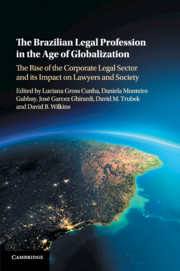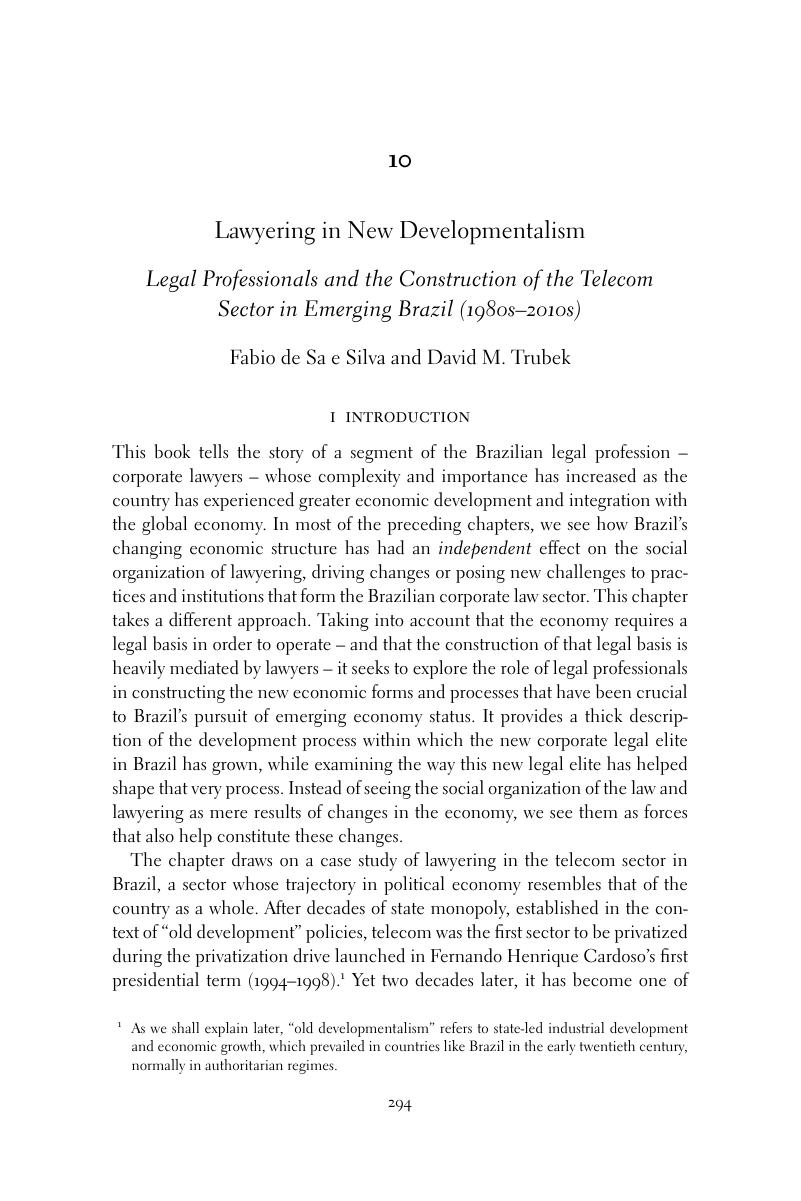 The Brazilian Legal Profession in the Age of Globalization
The Brazilian Legal Profession in the Age of Globalization Book contents
- The Brazilian Legal Profession in the Age of Globalization
- The Brazilian Legal Profession in the Age of Globalization
- Copyright page
- Contents
- Figures
- Tables
- Contributors
- Acknowledgments
- Foreword
- 1 Globalization, Lawyers, and Emerging Economies
- 2 Corporate Law Firms
- 3 In-House Counsels in Brazil
- 4 South by Southeast
- 5 Globalizing Processes for São Paulo Attorneys
- 6 The Ordem dos Advogados do Brasil and the Politics of Professional Regulation in Brasil
- 7 Doing Well and Doing Good in an Emerging Economy
- 8 Legal Education in Brazil
- 9 Transforming Legal Capacity in Brazil
- 10 Lawyering in New Developmentalism
- Index
- References
10 - Lawyering in New Developmentalism
Legal Professionals and the Construction of the Telecom Sector in Emerging Brazil (1980s–2010s)
Published online by Cambridge University Press: 21 December 2017
- The Brazilian Legal Profession in the Age of Globalization
- The Brazilian Legal Profession in the Age of Globalization
- Copyright page
- Contents
- Figures
- Tables
- Contributors
- Acknowledgments
- Foreword
- 1 Globalization, Lawyers, and Emerging Economies
- 2 Corporate Law Firms
- 3 In-House Counsels in Brazil
- 4 South by Southeast
- 5 Globalizing Processes for São Paulo Attorneys
- 6 The Ordem dos Advogados do Brasil and the Politics of Professional Regulation in Brasil
- 7 Doing Well and Doing Good in an Emerging Economy
- 8 Legal Education in Brazil
- 9 Transforming Legal Capacity in Brazil
- 10 Lawyering in New Developmentalism
- Index
- References
Summary

- Type
- Chapter
- Information
- The Brazilian Legal Profession in the Age of GlobalizationThe Rise of the Corporate Legal Sector and its Impact on Lawyers and Society, pp. 294 - 346Publisher: Cambridge University PressPrint publication year: 2018


